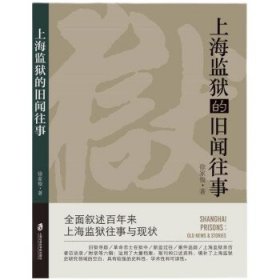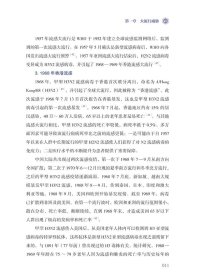
大流行:挑战与应对——Pandemics:Challenges 9787523501320
全新正版 可开票 支持7天无理由,不清楚的请咨询客服。
¥ 82.7 7.0折 ¥ 118 全新
库存2件
浙江嘉兴
认证卖家担保交易快速发货售后保障
作者《大流行:挑战与应对》编写组
出版社科技文献
ISBN9787523501320
出版时间2023-11
装帧平装
开本其他
定价118元
货号31889005
上书时间2024-01-25
- 最新上架
商品详情
- 品相描述:全新
- 商品描述
-
作者简介
\"《大流行:挑战与应对》编写组由来自科研院所、高校和社会组织的十多位公共卫生领域的权威专家组成。具体情况如下:专家组组长梁万年,教授,清华大学万科公共卫生与健康学院常务副院长,专业方向为公共卫生管理、卫生应急、全科医学。
成员包括曹务春,研究员,军事医学研究院微生物流行病研究所所长,专业方向为传染病流行病学与控制,空间信息技术在公共卫生领域的应用及分子流行病学研究。黄存瑞,教授,清华大学万科公共卫生与健康学院,研究方向为气候变化与健康,环境流行病学,公共卫生政策,全球健康治理。贾娜,研究员,军事医学研究院微生物流行病研究所。李明锟,研究员,中国科学院北京基因组研究所,研究领域为生物信息学,基因组学。刘民,教授,北京大学公共卫生学院艾滋病预防研究中心副主任,研究方向为传染病流行病学、生殖健康、健康大数据研究及应用。刘军,研究员,中国疾病预防控制中心病毒病预防控制所所长助理、国家流感中心副主,主要研究方向为病毒性疾病的细胞免疫研究、病毒分子流行病学研究。刘珏,研究员,北京大学公共卫生学院,主要研究方向为传染病流行病学、重大传染病防控与管理、妇幼健康、健康大数据研究及应用。刘霞,研究员,中华预防医学会副秘书长,研究方向为公共卫生管理。宋述慧,副研究员,中国科学院北京基因组研究所,主要研究方向为生物信息学、基因组变异及RNA转录调控。唐昆,副教授,清华大学万科公共卫生与健康学院;世界卫生组织全球青少年健康指标专家委员会委员,世界卫生组织新冠肺炎全球研究路线图社会科学组成员;研究领域为全球卫生与治理、妇幼卫生、性与生殖健康、健康的社会决定因素。童贻刚,教授,北京化工大学,主要研究领域为生物安全、微生物学、基因组学、生物信息学、高通量测序、超级耐药细菌、噬菌体学。王奇慧,研究员,中国科学院微生物研究所,主要研究病原感染与宿主免疫。吴志强,研究员,中国医学科学院病原生物学研究所,主要研究领域涉及新发突发病毒性传染病的预警溯源、利用宏基因组学研究方法针对人群和动物宿主携带病毒的病毒组学研究。许磊,副教授,清华大学万科公共卫生与健康学院,主要研究方向为重大传染病的数理统计模型、气候变化对人类健康和生态系统的影响等。杨运桂,研究员,中国科学院北京基因组研究所,主要研究领域为RNA表观遗传学特征、调控和功能。\"
目录
\"Pandemic Threats / 001
I. The Plague / 002
II. Cholera / 005
III. Smallpox / 008
IV. Influenza / 011
V. COVID-19 / 019
VI. Other infectious diseases that may cause pandemics / 019
References / 022
How Pandemics Arise / 027
I. Characteristics of pandemics and determination criteria / 027
II. Characteristics of pandemic-inducing infectious diseases / 029
III. Factors contributing to pandemics of infectious diseases / 034
References / 047
The Challenges of Pandemics / 053
I. Absence of a unified global community of interest / 054
II. Monitoring systems insufficient for early warning and response / 055
III. Lack of urgency and targeted measures early in the pandemic / 058
IV. Overburdened healthcare providers and lack of effective drugs / 059
V. Inequitable vaccine distribution and vaccine hesitation / 061
VI. Ineffective public education and social stigma and discrimination / 064
VII. Shortage of other diseases prevention and control services / 066
References / 068
Cross-Species Transmission of Pathogens / 071
I. Risk of cross-species transmission of pathogens / 071
II. Challenges of cross-species transmission of pathogens / 075
III. Studies on SARS-CoV-2 hosts / 077
IV. Risk assessment of cross-species transmission of pathogens / 083
References / 085
Genetic Sequencing-Based Pathogen Surveillance and Early
Warning Systems / 089
I. Methods for monitoring pathogenic variation / 089
II. Pathogen genome surveillance network and data sharing system /095
III. Bioinformatic prediction and warning of pathogenicity variations /100
References / 104
The Threat of Climate Change to Pandemics / 109
I. Climate change and pandemics / 110
II. The impact of climate factors on the COVID-19 pandemic / 116
III. Strategies to cope with the risk of infectious diseases under climate
change / 122
References / 125
Globalization and Pandemics / 131
I. The impact of globalization on pandemics / 132
II. The impact of pandemics on globalization / 137
III. The Chinese approach to addressing globalization and
pandemics / 147
References / 149
Pandemic Preparedness / 155
I. Surveillance of and preparedness for animal-origin pathogens with
pandemic potential / 156
II. Policy and coordination mechanisms / 160
III. Basic capacity building / 163
IV. Scientific research / 168
V. Workforce and talent training and reserve / 171
References / 173
Pandemic Response and Assessment / 179
I. PHEIC response and assessment / 180
II. Assessment of pandemic response capacity / 190
References / 192
The COVID-19 Pandemic / 197
I. The COVID-19 outbreak / 197
II. Epidemiological characteristics of the SARS-CoV-2 / 198
III. Identification of SARS-CoV-2 pathogens / 199
IV. Origin tracing of SARS-CoV-2 / 201
V. COVID-19 prevention and control measures and their effectiveness /205
VI. Reflections and outlook / 207
References / 210
Chapter 11 China’s Experience in the Prevention and Control of
COVID-19 and Its Contribution to the World / 213
I. The four phases of China’s COVID-19 prevention and controlefforts / 214
II. China’s experience in the prevention and control of COVID-19 /217
III. China’s contribution to the world through its response to
COVID-19 / 224
References / 227
Acknowledgments / 229\"
内容摘要
为了深入分析大流行的威胁和人类社会面临的挑战,科学阐释大流行传染病特征和重要影响因素,系统总结大流行防范和应对的策略与经验,为防范和应对未来可能再次出现的传染病大流行提供理论和方法借鉴,由清华大学万科公共卫生与健康学院梁万年教授牵头,组织十多位来自中国科研院所、高校和社会组织的专家,基于对全球相关领域最新科研成果的综述分析,结合全球抗击新冠肺炎疫情的经验,形成图书《大流行:挑战与应对》(英文版)。
主编推荐
为了深入分析大流行的威胁和人类社会面临的挑战,科学阐释大流行传染病特征和重要影响因素,系统总结大流行防范和应对的策略与经验,为防范和应对未来可能再次出现的传染病大流行提供理论和方法借鉴,由清华大学万科公共卫生与健康学院梁万年教授牵头,组织十多位来自中国科研院所、高校和社会组织的专家,基于对全球相关领域近期新科研成果的综述分析,结合全球抗击新冠肺炎疫情的经验,形成图书《大流行:挑战与应对》(英文版)。
相关推荐
— 没有更多了 —




























以下为对购买帮助不大的评价